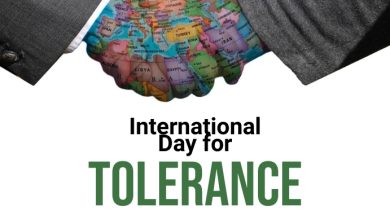
On August 5, 2019, India made a significant constitutional move by abrogating Article 370 and Article 35A, which granted special autonomy to the state of Jammu and Kashmir. This decision was announced by the Minister of Home Affairs, Amit Shah, and came amid an indefinite lockdown and a massive troop deployment in the disputed region.
This article reviews the legal implications of this abrogation, examining the historical context, key court cases, and judgments, and the broader impact on the region and India’s federal structure.
Article 370 and 35A: Origins and Provisions
Article 370 was the basis of Jammu and Kashmir’s accession to the Indian Union in 1947. This article, incorporated into the Indian Constitution in 1949, granted the region significant autonomy, allowing it to have its own constitution and flag and maintain jurisdiction over all matters except finance, defense, foreign affairs, and communications. Article 35A, introduced through a presidential order in 1954, allowed the local legislature to define permanent residents and restricted outsiders from settling in the region, buying property, and accessing state jobs and scholarships.
Legal Framework Pre-Abrogation
The provisions under these articles established a unique legal framework for Jammu and Kashmir. Article 370 was meant to be a temporary provision, but it allowed the state significant autonomy, distinguishing it from other Indian states. Article 35A reinforced this autonomy by preserving the state’s demographic and cultural composition.
The Abrogation Process
In August 2019, the BJP-led government used a presidential decree to abrogate Article 370. Concurrently, a bill was introduced to bifurcate the state into two union territories: Jammu and Kashmir with a legislative assembly, and Ladakh without one. The move, executed during a communication blackout and the house arrest of pro-India leaders, drew immediate reactions domestically and internationally, particularly from Pakistan, which also claims the region.
Key Court Cases and Judgments
The legality of the abrogation was challenged in the Indian Supreme Court, which delivered a landmark verdict in December 2023. The five-judge constitutional bench ruled that Article 370 was a “temporary provision” and its abrogation was constitutionally valid. Chief Justice DY Chandrachud emphasized that Article 370 was an interim arrangement due to the wartime conditions in 1947, and the removal of the region’s special status was within the constitutional framework.
Legal Implications of the Abrogation
The abrogation fundamentally altered the federal structure by integrating Jammu and Kashmir more closely with the rest of India. The conversion of the state into union territories reduced its autonomy, placing it under direct control of the central government. This move has significant implications for the concept of federalism in India, raising questions about the balance of power between the central and state governments.
Human Rights and Civil Liberties
The abrogation also sparked debates on human rights and civil liberties. The lockdown, communication blackout, and detention of political leaders were criticized for violating fundamental rights. Various petitions and legal challenges focused on these issues, highlighting the tension between national security and individual freedoms.
Property and Citizenship Rights
With the special status revoked, people from other parts of India can now buy property and settle in Jammu and Kashmir. This change has raised fears of demographic shifts and potential marginalization of the local population. Legal challenges have emerged, questioning the impact on property rights and the socio-economic fabric of the region.
Future Legal Challenges and Considerations
The Supreme Court’s call for restoring Jammu and Kashmir to full statehood “at the earliest and as soon as possible” indicates ongoing legal and political processes. Future legislative actions and policy decisions will continue to shape the region’s status and governance. Legal experts anticipate further challenges and debates on the implications of the abrogation and the restoration process.
The abrogation of Articles 370 and 35A marks a turning point in the legal and political landscape of Jammu and Kashmir. While the Supreme Court has upheld the constitutionality of the move, its broader implications for federalism, human rights, and regional stability remain subjects of intense debate. The ongoing legal challenges and future policy decisions will play a crucial role in shaping the future of Jammu and Kashmir within the Indian Union.
–Writer is student of IR at NDU/ Intern KIIR








